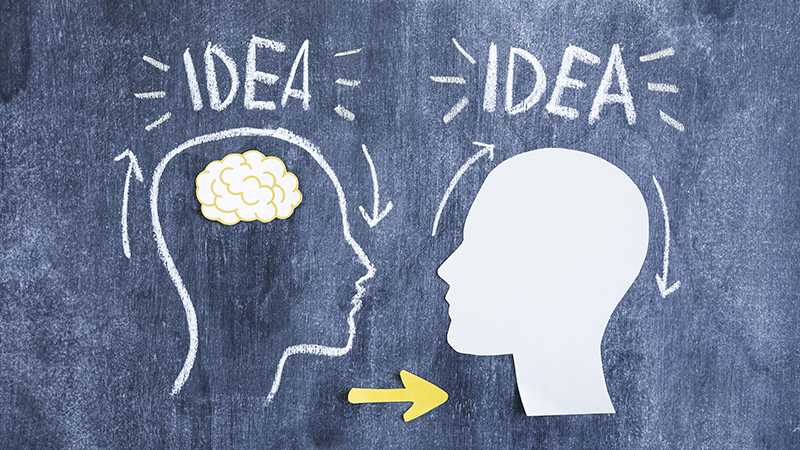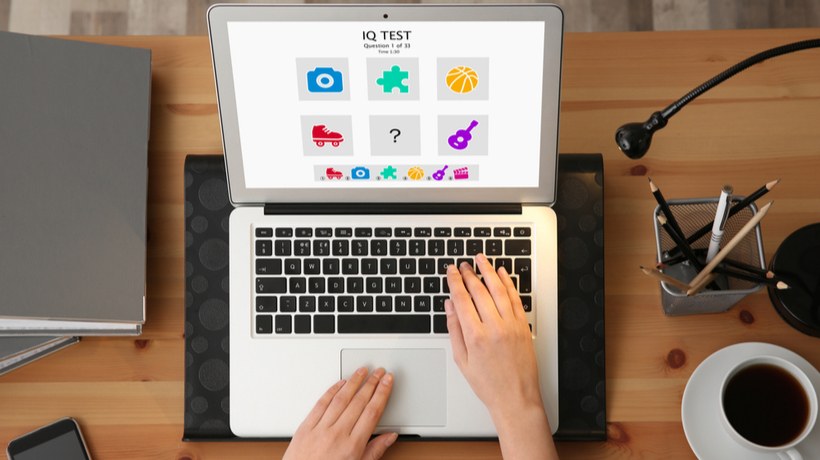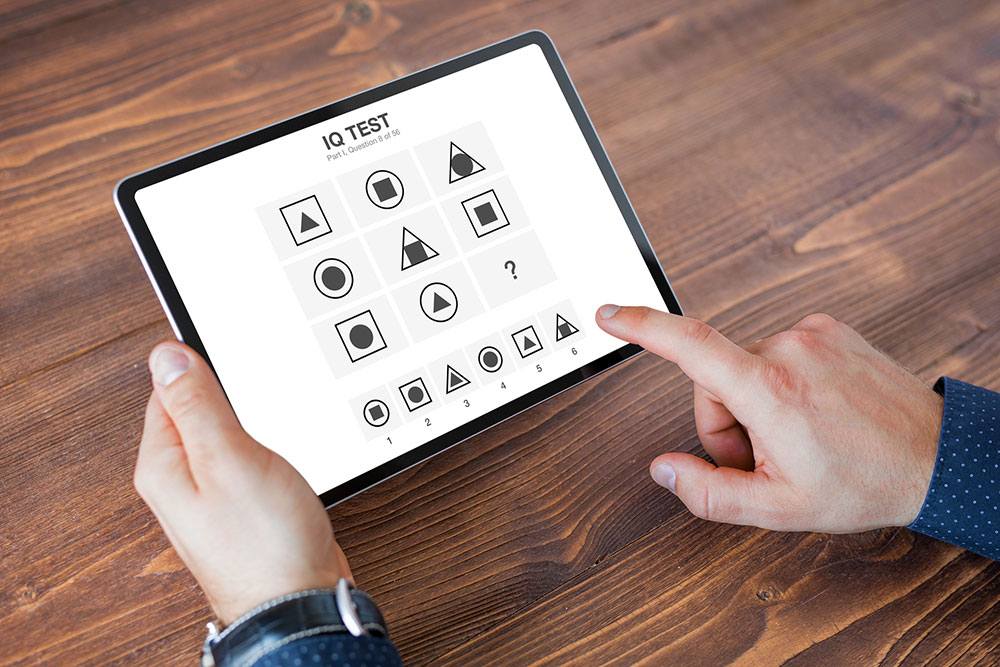Cognitive function encompasses mental abilities including memory, attention, problem-solving, and decision-making. Intelligence Quotient (IQ) is a standardized measure of cognitive abilities relative to one’s age group. Both cognitive function and IQ influence academic performance, career success, and quality of life. Research in neuroscience and nutrition reveals that diet significantly affects these mental capacities. This article explores the relationship between nutrition, diet, cognitive function, and IQ.
Overview of Brain Nutrition
The brain, comprising about 2% of our body weight, consumes approximately 20% of our daily energy intake. This high energy demand highlights the role of proper nutrition for optimal brain function. Key nutrients maintain and enhance cognitive abilities. Omega-3 fatty acids, particularly docosahexaenoic acid (DHA), are crucial for brain structure and function. These fatty acids form a significant portion of brain cell membranes and facilitate neurotransmission. B vitamins play roles in neurotransmitter synthesis and the metabolism of homocysteine, an amino acid linked to cognitive decline when present in high levels. Antioxidants protect brain cells from oxidative stress, which can lead to cognitive impairment over time.
These nutrients impact neurological processes in various ways. Omega-3 fatty acids enhance synaptic plasticity, the brain’s ability to form new neural connections, fundamental to learning and memory. This plasticity is crucial for acquiring new information, adapting to new situations, and recovering from brain injuries. B vitamins support the production of neurotransmitters like serotonin and dopamine, influencing mood and cognitive performance. These neurotransmitters regulate sleep, appetite, and emotional well-being, which indirectly affect cognitive function. Antioxidants combat free radicals that can damage brain cells, potentially slowing age-related cognitive decline. By neutralizing these harmful molecules, antioxidants help maintain the integrity of brain cells and the efficient transmission of neural signals.
Macronutrients and Cognitive Function
Macronutrients – proteins, carbohydrates, and fats – play distinct roles in cognitive function. Proteins provide amino acids necessary for neurotransmitter synthesis. Adequate protein intake supports cognitive processes such as attention and motivation. The amino acid tyrosine, found in protein-rich foods, is a precursor to dopamine, a neurotransmitter associated with motivation and cognitive control. Tryptophan is necessary for the production of serotonin, which influences mood and cognitive function.
Carbohydrates, the brain’s primary energy source, are vital for cognitive performance. Complex carbohydrates release glucose slowly into the bloodstream, providing a steady energy supply to the brain, supporting sustained mental focus and performance. The brain’s preference for glucose as its main fuel source highlights the need for stable blood sugar levels for optimal cognitive function. Fluctuations in blood glucose can lead to irritability, confusion, and impaired decision-making.
Fats are now recognized as crucial for brain health. The brain is composed of nearly 60% fat, emphasizing the significance of dietary fats for cognitive function. Omega-3 fatty acids, particularly those found in fatty fish, have been linked to improved cognitive performance and reduced risk of neurodegenerative diseases. These fatty acids are crucial components of cell membranes in the brain, influencing the fluidity and efficiency of neural communication. Not all fats are equal. Omega-3s and monounsaturated fats (found in olive oil and avocados) benefit brain health, but excessive consumption of saturated and trans fats may have detrimental effects on cognitive function. These unhealthy fats can contribute to inflammation and oxidative stress in the brain, potentially accelerating cognitive decline.
The optimal ratio of these macronutrients for cognitive performance varies depending on individual needs and health status. A general guideline might suggest a diet comprising 20-35% of calories from fat (with an emphasis on healthy fats), 45-65% from carbohydrates (focusing on complex carbohydrates), and 10-35% from proteins. This balance supports stable blood sugar levels, provides consistent energy to the brain, and ensures an adequate supply of essential amino acids and fatty acids for cognitive function. These ranges allow for personalization based on factors such as age, activity level, and specific health conditions.
Micronutrients and Cognitive Function
Micronutrients, including vitamins and minerals, play roles in maintaining and enhancing cognitive function. Vitamin D has been linked to cognitive performance. Research suggests that vitamin D receptors in the brain are involved in neurotransmitter synthesis and nerve growth. Low levels of vitamin D have been associated with an increased risk of cognitive decline and dementia. This vitamin’s role in brain health extends beyond its function in calcium metabolism, highlighting the interconnectedness of various bodily systems in supporting cognitive function.
Iron is crucial for cognitive function, particularly in early life. It plays a role in myelination, the process by which nerve fibers are insulated, allowing for efficient transmission of nerve impulses. Iron deficiency anemia in children has been linked to cognitive impairments and lower IQ scores. The impact of iron on cognitive development underscores the need to address nutritional deficiencies, especially in vulnerable populations such as pregnant women and young children.
Zinc is involved in neurotransmitter release and has been associated with cognitive development in children. This mineral is particularly concentrated in the hippocampus, a brain region crucial for learning and memory. Zinc deficiency has been linked to impaired cognitive function, highlighting its significance in brain health.
These micronutrients support cognitive processes through various mechanisms. Vitamin D may enhance neuroprotection and reduce inflammation in the brain. Its anti-inflammatory properties may help protect against neurodegenerative diseases. Iron facilitates the transport of oxygen to brain tissues and supports the synthesis of neurotransmitters. Adequate iron levels are crucial for maintaining the energy metabolism of brain cells and supporting cognitive processes that require quick thinking and mental agility. Zinc contributes to synaptic plasticity and is involved in the regulation of neurotransmitter receptors. Its role in synaptic function makes it essential for learning, memory formation, and cognitive performance.
The Mediterranean Diet and Brain Health
The Mediterranean diet has gained attention for its potential cognitive benefits. This dietary pattern is characterized by high consumption of fruits, vegetables, whole grains, legumes, and olive oil; moderate intake of fish and poultry; and limited consumption of red meat and processed foods. The diet is rich in antioxidants, healthy fats, and complex carbohydrates, which support brain health. The combination of these nutrients creates a synergistic effect that may be more beneficial than consuming individual components in isolation.
Research on the Mediterranean diet’s cognitive benefits is compelling. Long-term adherence to this dietary pattern has been associated with slower cognitive decline and reduced risk of Alzheimer’s disease. A study published in the New England Journal of Medicine found that participants following a Mediterranean diet supplemented with extra-virgin olive oil or nuts had better cognitive function compared to those on a low-fat diet. The diet’s high content of antioxidants and anti-inflammatory compounds may protect against neurodegenerative processes, while its emphasis on healthy fats supports brain structure and function.
The Mediterranean diet’s cognitive benefits may stem from several factors. Its high content of antioxidants from fruits, vegetables, and olive oil helps combat oxidative stress in the brain. The diet’s emphasis on whole grains provides a steady supply of energy to the brain, supporting sustained cognitive performance. The inclusion of fatty fish supplies essential omega-3 fatty acids, crucial for brain structure and function. The diet’s low content of processed foods and added sugars may help maintain stable blood sugar levels, which is beneficial for cognitive function.
The social and lifestyle aspects associated with the Mediterranean diet may contribute to its cognitive benefits. The diet is often consumed in a social setting, promoting social interaction and mental stimulation, which are beneficial for cognitive health. The overall lifestyle associated with this diet, which often includes regular physical activity and stress reduction, may further enhance its cognitive benefits.
The Impact of Poor Nutrition on Cognitive Function
Poor dietary habits can have detrimental effects on brain health. Nutrient deficiencies can impair cognitive abilities. For example, vitamin B12 deficiency, common among older adults and vegetarians, can lead to cognitive impairment and has been linked to brain atrophy. This deficiency can cause symptoms that mimic dementia, highlighting the role of proper nutrition for maintaining cognitive health, especially in aging populations.
Omega-3 fatty acid deficiency may result in reduced cognitive performance and increased risk of neurodegenerative diseases. Given the brain’s high content of these fatty acids, insufficient intake can impair the structure and function of brain cells, potentially leading to cognitive decline over time. This underscores the need to include sources of omega-3s, such as fatty fish or plant-based alternatives, in the diet.
The modern Western diet, often high in processed foods and added sugars, poses challenges to cognitive health. High sugar intake has been associated with impaired memory and increased risk of cognitive decline. A study in the journal Neurology found that people with high blood sugar levels, even within the normal range, experienced a faster rate of cognitive decline compared to those with lower blood sugar levels. This suggests that maintaining stable blood sugar through a proper diet may be crucial for long-term cognitive health.
Processed foods, often high in unhealthy fats and low in nutrients, may contribute to inflammation and oxidative stress in the brain, potentially accelerating cognitive aging. These foods are often calorie-dense but nutrient-poor, failing to provide the essential vitamins and minerals needed for optimal brain function. They often contain artificial additives and preservatives, the long-term effects of which on brain health are not fully understood.
The impact of poor nutrition on cognitive function extends beyond individual nutrients. Chronic overconsumption of calories, leading to obesity, has been linked to cognitive decline and increased risk of neurodegenerative diseases. Obesity is associated with chronic low-grade inflammation, which can affect brain health and cognitive function. Obesity often coexists with other health conditions, such as type 2 diabetes and cardiovascular disease, which can independently impact cognitive health.
Nutrition’s Role in IQ Development
Nutrition plays a crucial role in IQ development, particularly during early childhood when the brain is rapidly developing. Several studies have highlighted the link between early nutrition and later cognitive outcomes. A long-term study published in JAMA Pediatrics found that breastfed infants had higher IQ scores in adulthood compared to formula-fed infants. The researchers attributed this difference partly to the presence of long-chain polyunsaturated fatty acids in breast milk, which are essential for brain development. This finding underscores the significance of early nutrition in shaping long-term cognitive outcomes.
The first 1000 days of life, from conception to age two, represent a critical period for brain development. During this time, the brain is particularly sensitive to nutritional influences. Adequate intake of key nutrients like iron, zinc, iodine, and long-chain fatty acids during pregnancy and early childhood has been associated with better cognitive outcomes and higher IQ scores in later life. For instance, iodine deficiency during pregnancy can lead to irreversible brain damage in the developing fetus, highlighting the critical role of maternal nutrition in cognitive development.
Malnutrition during these critical periods can have long-lasting negative impacts on cognitive development and IQ. Stunting, a condition resulting from chronic malnutrition, has been associated with cognitive impairments that persist into adulthood. This emphasizes the need for interventions targeting early childhood nutrition, especially in regions where malnutrition is prevalent.
The impact of nutrition on IQ development extends beyond early childhood. Proper nutrition throughout childhood and adolescence continues to play a role in cognitive development. For example, a balanced diet rich in fruits, vegetables, and whole grains has been associated with better academic performance in school-aged children. This suggests that the benefits of good nutrition on cognitive function are ongoing and cumulative.
Nutrition plays a crucial role in IQ development, but it is not the sole determining factor. Genetic predisposition, environmental stimulation, education, and socioeconomic factors all contribute to cognitive development and IQ. Nutrition remains a modifiable factor that can significantly influence cognitive outcomes, making it a target for interventions aimed at improving cognitive function and IQ at a population level.
Dietary Interventions for Cognitive Enhancement
Interest has grown in dietary interventions aimed at enhancing cognitive function. The ketogenic diet, characterized by high fat and low carbohydrate intake, has shown promise in improving cognitive function in some studies, particularly in individuals with neurological disorders. The diet’s cognitive benefits are thought to stem from the brain’s use of ketones as an alternative energy source, which may enhance neuronal efficiency and reduce oxidative stress. More research is needed to fully understand the long-term effects of the ketogenic diet on cognitive function in healthy individuals.
Intermittent fasting has been studied for its potential cognitive benefits. Some research suggests that intermittent fasting may enhance brain plasticity and resilience to neurological challenges. This dietary pattern involves alternating periods of eating and fasting, which may trigger cellular repair processes that benefit brain health. The long-term effects of intermittent fasting on cognitive function in healthy individuals remain a subject of ongoing research. These dietary interventions may not be suitable for everyone and should be undertaken under the guidance of a healthcare professional.
Certain supplements have been marketed for cognitive enhancement, with varying degrees of scientific support. Omega-3 supplements, particularly those high in DHA, have shown some promise in supporting cognitive function, especially in older adults. These supplements may be beneficial for individuals who do not consume adequate amounts of fatty fish in their diet. The evidence for many “brain-boosting” supplements remains inconclusive, and more research is needed to establish their efficacy and safety. It’s recommended to obtain nutrients from whole food sources when possible, as the synergistic effects of nutrients in food may provide greater benefits than isolated supplements.
Other dietary interventions that have shown potential for cognitive enhancement include the MIND diet (Mediterranean-DASH Intervention for Neurodegenerative Delay), which combines elements of the Mediterranean and DASH (Dietary Approaches to Stop Hypertension) diets. This dietary pattern emphasizes foods that have been associated with better brain health, such as leafy greens, berries, nuts, and fish. Preliminary research suggests that adherence to the MIND diet may be associated with slower cognitive decline and reduced risk of Alzheimer’s disease.
The field of nutritional neuroscience is still evolving. Individual responses to dietary changes can vary, and what works for one person may not work for another. Cognitive function is influenced by a complex interplay of factors, including genetics, lifestyle, and environmental factors. A holistic approach to cognitive health that includes proper nutrition, regular physical exercise, mental stimulation, and stress management is likely to be most effective.
Conclusion
The impact of nutrition and diet on cognitive function and IQ is profound and multifaceted. A balanced, nutrient-rich diet that includes adequate amounts of essential fatty acids, vitamins, and minerals is crucial for optimal brain health and cognitive performance. The Mediterranean diet, with its emphasis on whole foods and healthy fats, offers a promising dietary pattern for supporting long-term cognitive health.
The role of early nutrition in cognitive development and IQ underscores the need to address nutritional deficiencies and promote healthy eating habits from an early age. This has implications for public health policies and interventions, particularly in areas where malnutrition is prevalent. Ensuring adequate nutrition during critical periods of brain development could have far-reaching effects on individual and societal outcomes.
Specific dietary interventions and supplements may offer cognitive benefits, but more research is needed to fully understand their effects and appropriate applications. The field of nutritional neuroscience is rapidly evolving, and future studies may uncover more specific dietary recommendations for optimizing cognitive function and IQ. As our understanding of the brain-diet connection continues to grow, it’s clear that nutrition plays a vital role in shaping our cognitive abilities throughout life.
By making informed dietary choices, we can support our brain health, potentially enhance our cognitive function, and maintain our mental acuity as we age. Diet is one aspect of a healthy lifestyle. Regular physical exercise, mental stimulation, quality sleep, and stress management all play crucial roles in maintaining cognitive health.
As research in this field progresses, we may see the development of more personalized nutritional approaches to cognitive health, taking into account individual genetic profiles, lifestyle factors, and specific cognitive needs. This could open new avenues for enhancing human potential through nutrition, potentially leading to breakthroughs in the prevention and treatment of cognitive disorders.
Adopting a balanced, nutrient-rich diet, such as the Mediterranean diet, and maintaining overall health through lifestyle choices remains the most evidence-based approach to supporting cognitive function and IQ throughout life. As we continue to unravel the complex relationship between nutrition and brain health, one thing remains clear: the food we eat doesn’t just fuel our bodies, it nourishes our minds, shaping our cognitive abilities and influencing our potential for intellectual growth and achievement.










